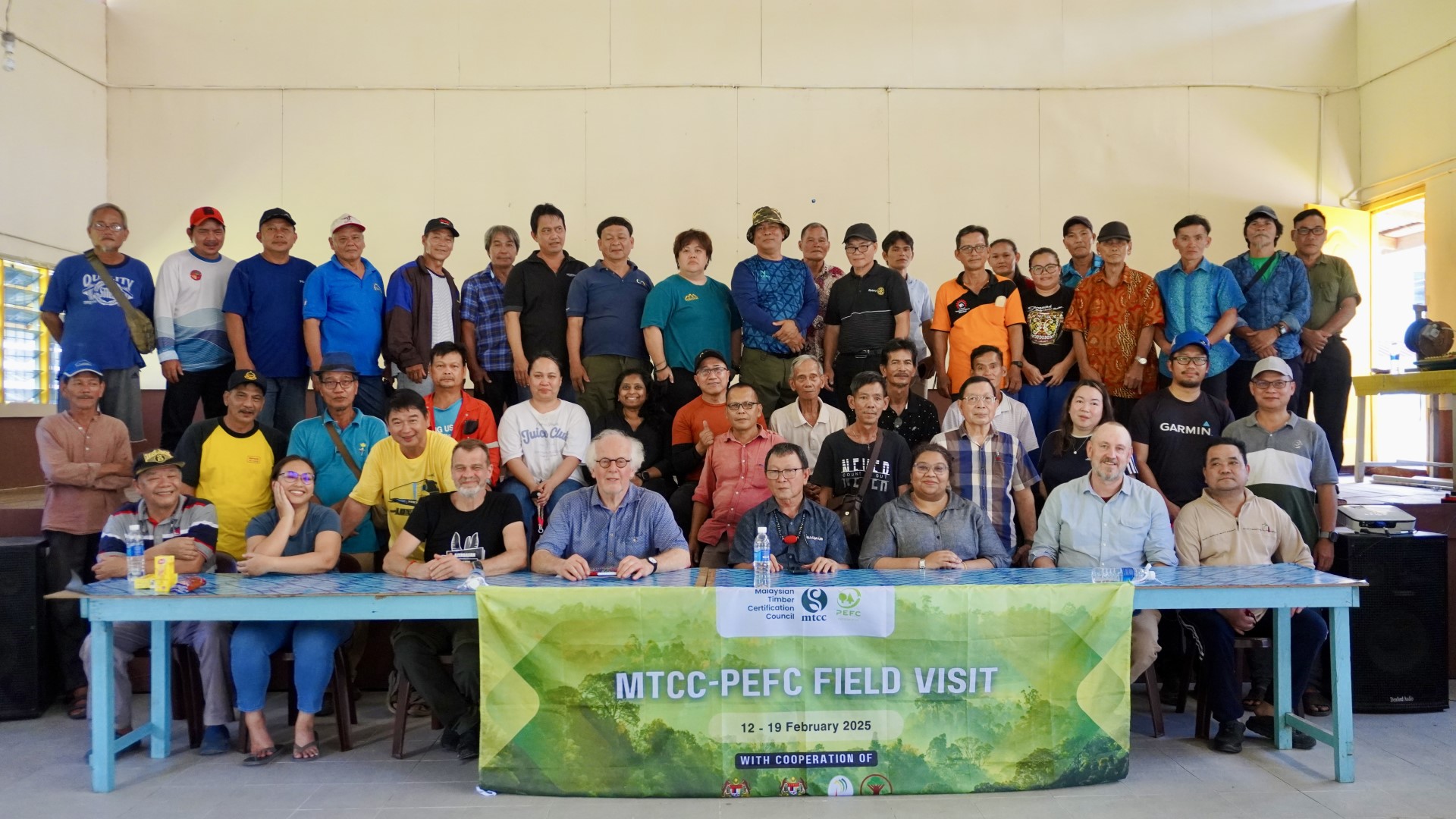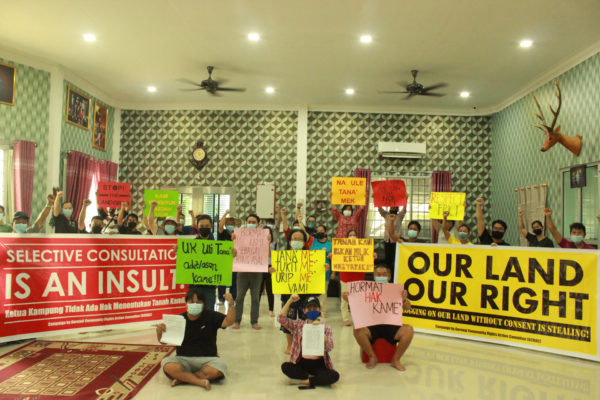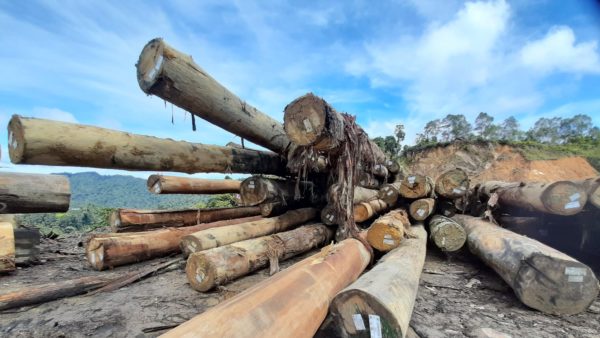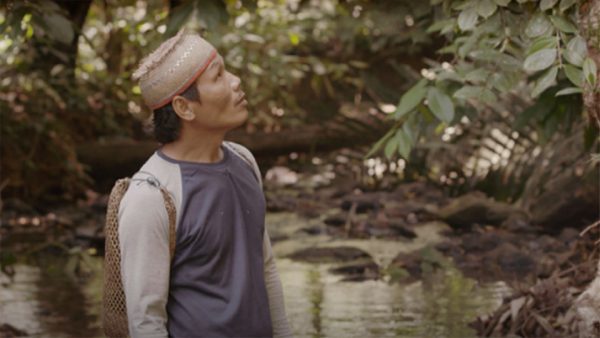Indigenous communities in Sarawak win a landmark victory as the Malaysian Timber Certification Council (MTCC) and international timber certifier visit Sarawak to inspect timber operations
First published on 02/20/2025, and last updated on 02/27/2025
By Save Rivers
Civil society groups recently discovered that a number of Samling’s forest timber licenses had been quietly removed from the MTCS list of certified natural forests. During a February 13th meeting with village leaders (Ketua Kampong) from the Gerenai Forest Management Unit (FMU), a Samling representative confirmed the company has abandoned logging in the area due to sustained opposition from communities and NGOs, as well as financial considerations.
The meeting was organized as part of an inspection of MTCs-certified operations in Malaysia by the Programme for the Endorsement of Forest Certification (PEFC) and representatives of the Dutch Timber Procurement Assessment Committee (TPAC). Their visit was prompted by repeated reports of certification failures. The meeting on February 13th only included the Ketua Kampong of the Gerenai area.
Local NGOs also arranged for PEFC and TPAC to meet directly with people from impacted communities on February 15th in Lepo’ Gah Tanjung Tepalit, a village long under threat from logging and a key community in the fight to stop the Baram Dam. Approximately 70 community members attended the meeting from all around the Baram region. “We really hope this meeting will finally bring about positive change. I wanted to be here to show that whether certified or not certified, communities here have all suffered from logging activities” commented one community member who had travelled from the remote Penan village of Ba Data Bila to attend. Penan leader Komeok Joe, Executive Director of Keruan Organisation, reiterates the Penan communities’ call for a permanent withdrawal of MTCC certification and logging concessions, especially the Ravenscourt FMU: “They have suffered enough from logging and lack of FPIC in the past!”
For years, Indigenous communities and civil society partners have exposed serious flaws in Malaysia’s timber certification process, citing inadequate consultations, disregard for customary land rights, and lack of transparency in the implementation of forest management standards.
Commenting on the community meeting, Celine Lim, Managing Director of SAVE Rivers, said “The crowd that gathered here today are eager to voice their grievances over systems that rob them of their Indigenous territories. They are jubilant that Samling withdrew their forests and from the logging certification system. What communities now want is a full recognition of their territories, and to stop having to perpetually deal with outsiders that claim to have operational rights.”
When asked what will happen to the land now, a representative from the Forest Department stated that the government has mechanisms to determine land use. Communities and NGOs call on the Sarawak government to return the land to Indigenous communities, uphold Indigenous rights, and prevent other companies from entering Indigenous territories without the full consent of communities. Uding, a Kenyah-speaking resident of Lepo’ Gah Tanjung Tepalit, told SAVE Rivers after the session “If only I were able to speak in Malay, I would go and tell them we just do not want any logging activities in our forests any more. We just want it to stop.”
Note: This is content from a member of the ICCA Consortium, shared here without any changes or edits by the Consortium.



